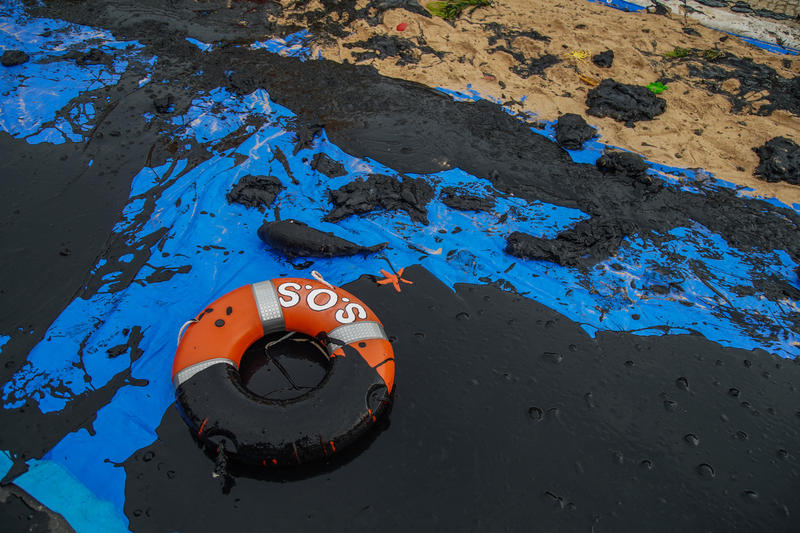Cop28, marking a key stress test for the Paris Agreement, will be about facing the facts, correcting course and giving solutions a real chance.
The UAE talks cap a year that saw the world’s climate scientists lay out the unequivocal need for steep and immediate emissions cuts to limit warming to 1.5ºC and ways to get there.
A year in which the International Energy Agency set out a narrow but feasible 1.5ºC aligned pathway for the decline of fossil fuels and acceleration of renewables.
Fossil fuels are relentlessly and undeniably killing us, but renewable energy promises a better future, where no one is left behind.
Primer: The ‘inevitable’ fossil fuel fight set to dominate Cop28
Take my homeland of Denmark as an example. For more than 80 years Denmark has allowed exploration for hydrocarbons and since 1972, oil – and later gas – has been produced in the Danish offshore waters of the North Sea.
In 2019 alone, Denmark produced a total of 3.2 billion cubic meters of fossil gas. So we’ve certainly done our part in causing this crisis.
Wind is winning
Yet, now we’re proving the impossible possible. Wind energy, which was long seen as a nice-to-have but not good for energy security, is already delivering over half of all Denmark’s power needs, largely thanks to community commitment and political ambition.
Furthermore, the Danish Parliament announced in 2020 that it would cancel all future licensing rounds for new oil and gas exploration and production permits in the Danish part of the North Sea and end existing production by 2050.
The Nordic nation hasn’t stopped there as it initiated the Beyond Oil and Gas Alliance, an international alliance of governments and stakeholders working together to facilitate the managed phase-out of oil and gas production.
Launched at Cop26 and led by the governments of Denmark and Costa Rica, the alliance aims to elevate the issue of oil and gas production phase-out in international climate dialogues, such as those we will shortly see in Dubai.
Denmark doesn’t have it all sorted out though as oil and gas production is projected to increase over the coming years before peaking in 2028 and 2026 respectively and will start declining hereafter.
Make polluters pay
Rising emissions and planned expansion of fossil fuel production, wherever in the world, are wildly out of sync with the direction of progress needed on the international stage, while financial support to reduce emissions in poorer countries, along with finance to address escalating climate impacts, remains completely inadequate.
Meet the Italian fugitive advising Emirati start-up Blue Carbon
The last thing the world needs is new fossil fuel developments. At Cop28, governments must do their utmost to agree to end expansion and instead rapidly phase out coal, oil and gas, and accelerate the renewable energy transition.
It doesn’t end there. Citizens, like me, of wealthy countries, like Denmark, with historical responsibility for the climate crisis, need to make sure our governments take accountability for finding and channeling money from where it sits to where it’s needed – from polluters to those least responsible and most in need as they transition to renewable energy and build climate resilience.
We need a credible finance package that includes the launch of a new Loss and Damage Fund, and steps to start making polluters pay for the destruction and harm they have caused.
The climate crisis is not in some far-off future. It is here right now and the planet is not coping despite the credible solutions on offer.
A world free of fossil fuels is possible as much as climate resilient frontline communities, but it won’t feel that way until it is done. It’s time for governments to get it done and stop the climate emergency. Dubai awaits.
Mads Flarup Christensen is the executive director of Greenpeace International
